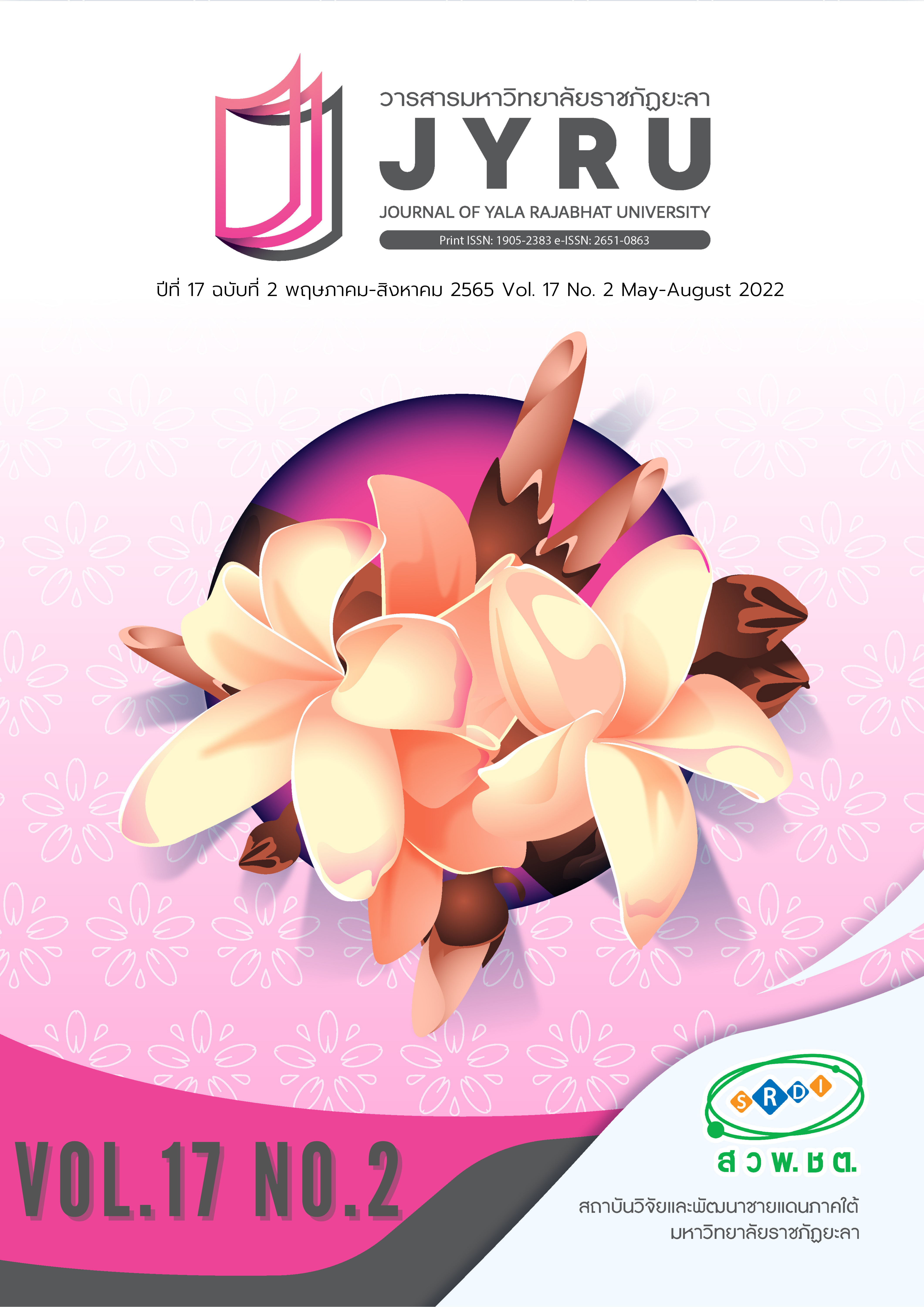การวิเคราะห์ความต้องการของลูกค้าที่มีต่อส่วนประสมทางการตลาดการประกอบการเสื้อผ้าแฟชั่นออนไลน์ โดยการประยุกต์ใช้แบบจำลองคาโน : มุมมองของนิสิตมหาวิทยาลัยเกษตรศาสตร์ วิทยาเขตศรีราชา
Main Article Content
บทคัดย่อ
การปรับตัวของผู้ประกอบการให้เข้าถึงความต้องการของลูกค้าเป็นสิ่งสำคัญต่อกิจการ จึงนำมาสู่การวิจัยที่มีวัตถุประสงค์เพื่อศึกษาความต้องการของลูกค้าที่มีต่อส่วนประสมทางการตลาดการประกอบการเสื้อผ้าแฟชั่นออนไลน์ โดยการประยุกต์ใช้แบบจำลองคาโนในมุมมองของนิสิตมหาวิทยาลัยเกษตรศาสตร์ วิทยาเขตศรีราชา โดยใช้แบบสอบถามออนไลน์และมีผู้ตอบแบบสอบถามจำนวน 557 คน สถิติที่ใช้ในการวิเคราะห์ข้อมูล คือ ค่าความถี่และร้อยละ ผลการศึกษาพบว่า ส่วนประสมทางการตลาดออนไลน์ (6 Ps) คือ 1) ด้านสินค้า 2) ด้านราคา 3) ด้านช่องทางการจัดจำหน่าย 4) ด้านการส่งเสริมการตลาด 5) ด้านการให้บริการส่วนบุคคล และ6) ด้านการรักษาความเป็นส่วนตัว ซึ่งประกอบด้วย 27 คุณลักษณะ สามารถจำแนกตามความต้องการของลูกค้าเป็น 4 ประเภทตามแบบจำลองคาโน คือ 1) คุณลักษณะที่จำเป็นต้องมี คือ ด้านสินค้า ด้านราคา และด้านการรักษาความเป็นส่วนตัว มีจำนวนด้านละ 1 คุณลักษณะ 2) คุณลักษณะที่ทำให้ลูกค้าพึงพอใจ คือ ด้านสินค้า ด้านราคา และด้านช่องทางการจัดจำหน่าย มีจำนวนด้านละ 1 คุณลักษณะ ส่วนด้านการให้บริการส่วนบุคคล และด้านการรักษาความเป็นส่วนตัว มีจำนวนด้านละ 2 คุณลักษณะ 3) คุณลักษณะที่ทำหน้าที่ดึงดูดใจลูกค้า คือ ด้านสินค้า และด้านการส่งเสริมการตลาดมีจำนวนด้านละ 3 คุณลักษณะ ด้านราคา มีจำนวน 2 คุณลักษณะ ด้านช่องทางการจัดจำหน่ายมีจำนวน 5 คุณลักษณะ และด้านการให้บริการส่วนบุคคล มีจำนวน 1 คุณลักษณะ และ4) คุณลักษณะที่ไม่มีความแตกต่างในความรู้สึกของลูกค้า คือ ด้านสินค้า มีจำนวน 1 คุณลักษณะ และด้านการส่งเสริมการตลาด มีจำนวน 2 คุณลักษณะ ผลลัพธ์การศึกษาจะเป็นประโยชน์ต่อการพัฒนาส่วนประสมทางการตลาดของผู้ประกอบการให้ดียิ่งขึ้นในอนาคต
Article Details

อนุญาตภายใต้เงื่อนไข Creative Commons Attribution-NonCommercial-NoDerivatives 4.0 International License.
บทความ ข้อมูล เนื้อหา รูปภาพ ฯลฯ ที่ได้รับการเผยแพร่ในวารสารมหาวิทยาลัยราชภัฏยะลานี้ ถือเป็นลิขสิทธิ์ของวารสารมหาวิทยาลัยราชภัฏยะลา หากบุคคลหรือหน่วยงานใดต้องการนำทั้งหมดหรือส่วนหนึ่งส่วนใดไปเผยแพร่ต่อหรือกระทำการใดๆ จะต้องได้รับอนุญาตเป็นลายลักษณ์อักษรจากวารสารมหาวิทยาลัยราชภัฏยะลาก่อนเท่านั้น
เอกสารอ้างอิง
Ampoch, K. & Darawong, C. (2018). Marketing mix strategy affecting customer satisfaction and loyalty towards convenience stores in Pattaya, Chonburi province. Chandrakasem Rajabhat University Journal of Graduate School, 13(1), 43-55. (in Thai)
Berger, C., Blauth, R., Boger, D., Bolster, C., Burchill, G., DuMouchel, W. and Pouliot, F., et al. (1993). A special issue on Kano's methods for understanding customer-defined quality. Center for Quality Management Journal, 2(4), 3-35.
Borgianni, Y. (2018). Verifying dynamic Kano’s model to support new product/service development. Journal of Industrial Engineering and Management, 11(3), 569-587.
Donladpun, C. & Zumitzavan, V. (2020). Customers’ decision-making in purchasing online-goods: a case study of Khon Kaen Municipality. Journal of Social Science and Buddhistic Anthropology, 5(6), 118-131. (in Thai)
Education Division, Kasetsart University Sriracha Campus. (2020). Summary of registration number of Students at the end of the academic year 2020 [online]. Retrieved May 6, 2021, from: https://reg.src.ku.ac.th/res/reg/stats_stdudent.aspx (in Thai)
Jaipan, T. & Potchanasin, C. (2016). An analysis of optimal tomato juice product attributes for the consumer in Bangkok Metropolis. Journal of Economics Ramkhamhaeng University, 2(1), 53-76. (in Thai)
Kasikorn Research Center. (2018). Retail can be able to survive in the online era of expansion [online]. Retrieved March 25, 2021, from: https://kasikornbank.com/th/business/sme/KSMEKnowledge/article/KSMEAnalysis/Documents/Retail-Business-Survival_Online-Age.pdf. (in Thai)
Khumphaet, N., (2020). The violation of right to privacy and right to reputation by vilification in electronic commerce area. CMU Journal of Law and Social Sciences, 13(1), 24-53. (in Thai)
Kieanwatana, K., Phongchaipaiboon, C. & Thitipimolpra, N. (2020). Marketing-mixed factors influencing outbound travel insurance purchasing decision of Thai tourists. Journal for Social Sciences Research, 11(1), 36-54. (in Thai)
Ritthiboonchai, W., KraiwutSom, P. & TRANG NGO, T. M. (2018). Factors affecting online shopping behavior of Thai and Vietnamese female students. The 10th NPRU National Academic Conference, 29 - 30 March 2018. Nakhon Pathom: Nakhon Pathom Rajabhat University. (in Thai)
Rotar, L. J. & Kozar, M. (2017). The use of the Kano Model to enhance customer satisfaction. Organizacija, 50(4), 339 - 351.
Roy, A. S., Bose, D. and Bera, U. K. (2020). Assessment of residential institute foodservice using Kano categorization and importance–performance analysis. The TQM Journal, 32(3), 401-428.
Rojnaphalai, P. & Khongmalai, O. (2018). Factors affecting consumers’ continued intention to buy online products fashion clothing case study. The 10th Walailak Research, March 27-28, 2018. Nakhon Si Thammarat: Walailak University. (in Thai)
Srichannil, S. (2017). Online marketing mix on buying decision of internet’s products of consumers in Nonthaburi. Research Report, Rajapruek University. (in Thai)
Wongwaitrakarn, A. (2017). Influences of the marketing mix and online marketing communication tools that affected on consumer perception of purchasing decision via the online store. Master’s Thesis. Silpakorn University. (in Thai)
Wisutthirat, S. & Veerasoontorn, R. (2016). Marketing mix affecting customer satisfaction towards construction company in Pattaya district Chonburi province. Prae-wa Kalasin Journal of Kalasin University, 3(2), 9-25. (in Thai)
Wong, A. & Ho, M. (2019). Service quality and customer satisfaction on budget airlines: Kano model approach. Journal of Economics, Management and Trade, 24(5), 1-16.
Yamane, T. (1967). Statistics: an introductory analysis. 2nd Edition, New York: Harper and Row.
Yoosawat, E., Na Pathum, S. & Laksitamas, P. (2018). The affects of Thai consumer rights protection, marketing communication for life insurance behavioral decision. Journal of Humanities and Social Sciences Thonburi University, 12(28). 270-281. (in Thai)


